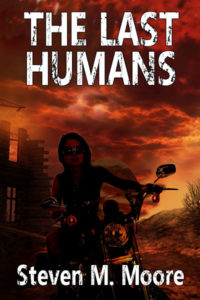Escapism…
I get it. People live vicariously via their fantasy movies—Endgame, Star Wars, Harry Potter, Game of Thrones,…. They also get lost in their computer games, so much so that Fortnite becomes a competition on national TV. I don’t agree with you-know-who that either one drives gun violence. This kind of escapism is a much healthier way to get a high, even compared to gambling, alcohol, or opioids. But the scientist in me makes me think there should probably be an organization with acronym EA, for Escapists Anonymous because the media experience of these “safe activities” can be addictive.
That said, let me state that I also participate in escapism too, via book reading. The Marvel Universe in film can entertain sometimes, but those old comics entertained me more. Harry Potter was a series of seven books long before they became movies, although the last book in the series was so verbose that it became two movies. Game of Thrones became popular in books before audiovisual addicts got hooked on it watching HBO.
Generally speaking, I’m not a fantasy book reader. I enjoyed the first Potter books, but hated the intruding and bludgeoning verbosity of the later novels. I gave away my Marvel Comics long ago (they’d be collector items today), simply because all comics seemed immature as I read Agatha Christie and H. Rider Haggard under the bedcovers with a flashlight. I’m proud to say I never read Game of Thrones—anything with dragons turns me off (I did like Sean Connery as a dragon, though).
What becomes popular in the fantasy genre often seems inferior when compared to books in other genres…with some notable exceptions. Stan Brown’s Veiled Memory represents very original fantasy writing, for example; it contains no dragons, has many historical references, and can be considered young adult-oriented just like the Potter books…and like the Potter books, adults who are young at heart can enjoy them too. Zoe Tasia’s Kilts and Catnip is another example of fantasy writing—I can even relate to the Celtic people with the magical powers! (Irish writers seem to have them in abundance. See the pic on my web page “About the Author.”)
I don’t write fantasy. It’s complicated to write. The author must build a fantasy world, sometimes within our real world as in the case of Harry Potter and the last two books I mentioned. This world still has to have consistent rules. I’ve seen many a fantasy story ruined by deus-ex-machina appearances of a different rule that allows a protagonist to survive. That’s not allowed! Building this fantasy world with its own rules is similar to sci-fi where world-building narrative is required if only to establish the other-worldly settings.
If you study Rowling’s Harry Potter series carefully, she continuously adds to the rules of her magical world, so much so that I couldn’t help often saying to myself, “Where the hell did this come from?” because some magical element magically popped into the mind of the author. Or was Rowling just doing this to pad her word count? Only she knows for sure.
Perhaps I’m too hard on fantasy writers. They usually do a much better job than script writers and computer game creators. It takes a lot of writing skill to create a consistent magical world. I know because A.B. Carolan struggled with that in Mind Games, his most recent book. Androids with ESP? What can go wrong? From the writing perspective: a lot! Mind Games has a lot of magical-like elements (anything with ESP lies in the fuzzy regions between fantasy and sci-fi). A.B.’s plot device helps avoid the difficulties: the main character continues to discover her psi powers as the story unfolds. That happened to Harry Potter too, but I find ESP more human and less magical than Potter’s bag of tricks.
But I digress and need to summarize: I don’t mind a good fantasy story in book form. In a book, that world building is laid out—I don’t have to take it like a slap in the face as I do with movies and computer games, and I can savor the logical if fantastic consistency of it all. I’m also a more active participant. In the audiovisual worlds of movies and games, there’s no time for solid world-building, and I become a passive observer.
But we should never forget Clarke’s quote: “Any sufficiently advanced technology is indistinguishable from magic.” Is ESP a technology? Maybe in the future it is!
***
Comments are always welcome.

The Last Humans. “I saw an arm sticking out from another pile of rubble. Went down to it, calculated where his head should be, and started digging. Uncovered him and began to slap his blue face. ‘Don’t bail out on me now, you SOB!’” Penny Castro is on a forensic dive for the Los Angeles County Sheriff’s Department when she surfaces to find a post-apocalyptic world. Follow her adventures in this thriller from Black Opal Books. Available in print and ebook format from Amazon or the publisher, or in ebook format from Smashwords and its affiliated retailers (iBooks, B&N, Kobo, etc.). Also available at your favorite local bookstore (if they don’t have it, ask for it).
Around the world and to the stars! In libris libertas!
